Phase 2 Cooperation of MAPPF Timor-Leste with Faculty of Agriculture, Udayana University in Strengthening Food Security of Timor-Leste
Dili, Timor-Leste – March 25, 2025 – The Ministry of Agriculture, Livestock, Fisheries, and Forestry (MAPPF) of Timor-Leste has officially renewed its partnership with the Faculty of Agriculture, Udayana University (FP Unud) through the signing of a second-phase research contract. The signing ceremony took place at the Ministry’s headquarters and was officiated by Eng. Celestino da Cunha Barreto, MP, Director General of Corporate Services, alongside Dr. I Putu Sudiarta, S.P., M.Si., Ph.D., Dean of the Faculty of Agriculture, Unud.
This initiative marks the continuation of a collaborative research program previously conducted across seven municipalities (Munisípius) in Timor-Leste. Phase II will expand the research to seven additional municipalities—Lautem, Manatuto, Dili, Atauro, Aileu, Liquica, and Oe-cusse, with a primary focus on Land Suitability Evaluation and Regional Potential Mapping for the development of the agriculture, livestock, fisheries, and forestry sectors. The project brings together a multidisciplinary research team from Unud, comprising experts in land resources, soil conservation, soil fertility, Geographic Information Systems (GIS) & remote sensing, animals husbandry science, and freshwater aquaculture. Its overarching goal is to generate accurate, science-based data and insights that can inform evidence-based policy decisions and foster sustainable food and agricultural development across Timor-Leste.
A cornerstone output of the research will be the creation of a comprehensive geospatial database utilizing advanced GIS technologies. This dataset will enable both government bodies and local communities to identify and develop the most suitable agricultural commodities for their respective regions. Recommendations will be grounded in field-based land observations and laboratory analyses, accounting for variables such as soil types, geological conditions, slope gradients, water availability, and the physical and chemical properties of the soil. Beyond staple food production, the geospatial database will also support site-specific development of high-value commodities, including horticultural crops, industrial and plantation crops, medicinal plants and spices, forestry products, animal husbandry, and inland fisheries. The project is expected to significantly contribute to increasing productivity in a targeted, resource-efficient, and sustainable manner.
In his opening remarks, Dr. Sudiarta expressed gratitude for MAPPF’s continued trust in Unud, emphasizing that the outcomes of this research will serve as a strategic reference not only for local and national stakeholders, but also for international researchers working in Timor-Leste. He urged the research team to uphold high standards of professionalism, responsibility, and dedication throughout the project. Eng. Barreto highlighted that Timor-Leste’s recent accession to ASEAN presents an immense opportunity to expand agricultural exports. Eng. Barreto underscored the critical importance of research-based guidance in developing competitive, high-value commodities for the regional market. In his keynote speech, Minister of MAPPF, Eng. Marcos da Cruz, MAgSt, reaffirmed the vital role of land evaluation as a blueprint for determining suitable commodity types in each region. Da Cruz called upon directors across all munisípius to offer full support for the implementation of field research activities.
The event continued with a technical presentation by the Principal Investigator, Prof. Dr. Ir. Ni Made Trigunasih, M.P., who outlined the urgency of conducting land suitability assessments and potential mapping as the scientific foundation for regional agricultural planning. Trigunasih also presented key findings from Phase I, which was successfully conducted in Baucau, Viqueque, Manufahi, Ainaro, Covalima, Bobonaro, and Ermera. A lively discussion and Q&A session followed, reflecting the strong engagement and enthusiasm of stakeholders. The event concluded with a group photo, symbolizing a shared commitment to building a resilient, sustainable, and science-based agricultural system tailored to the unique potential of each region.
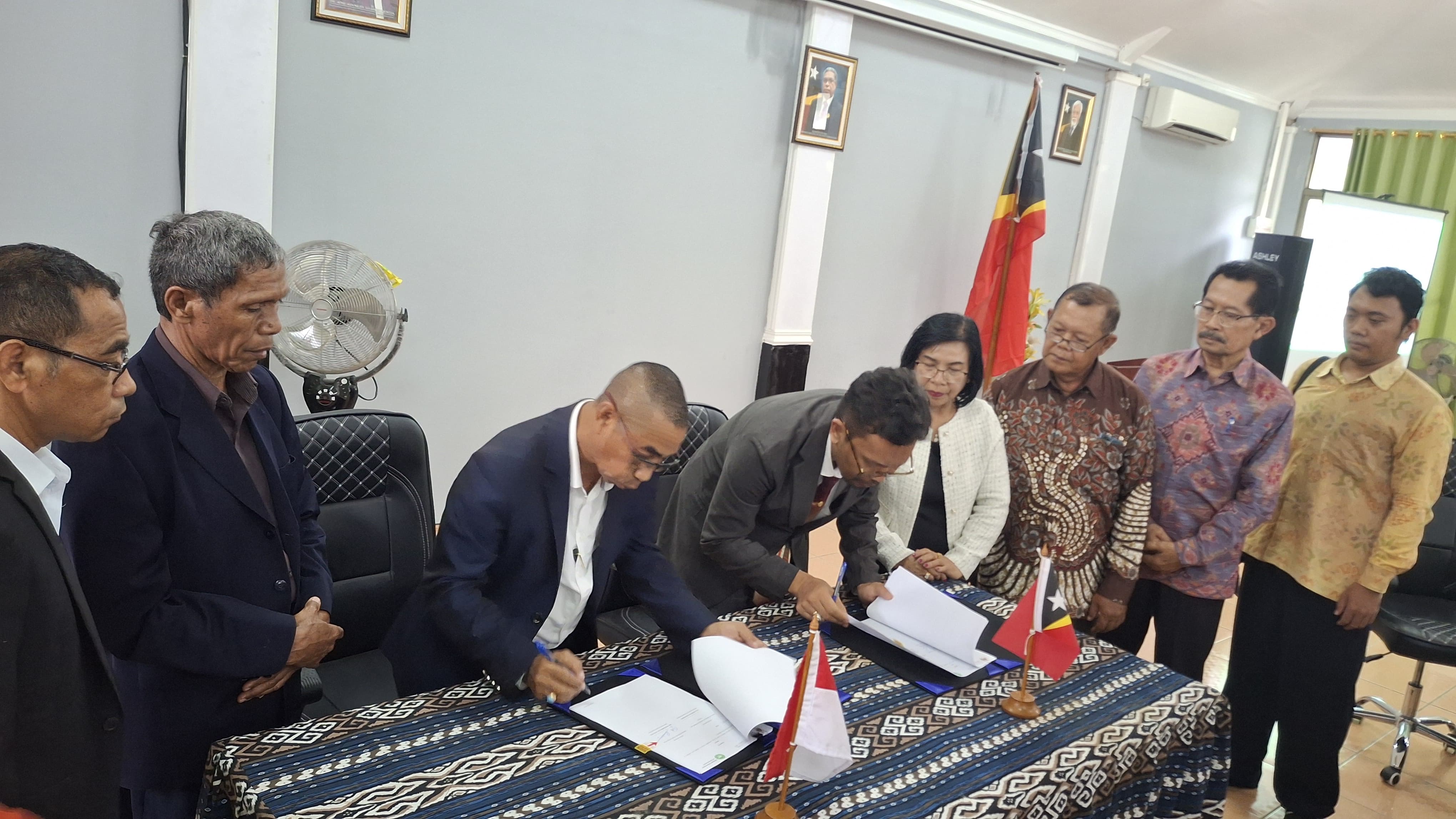
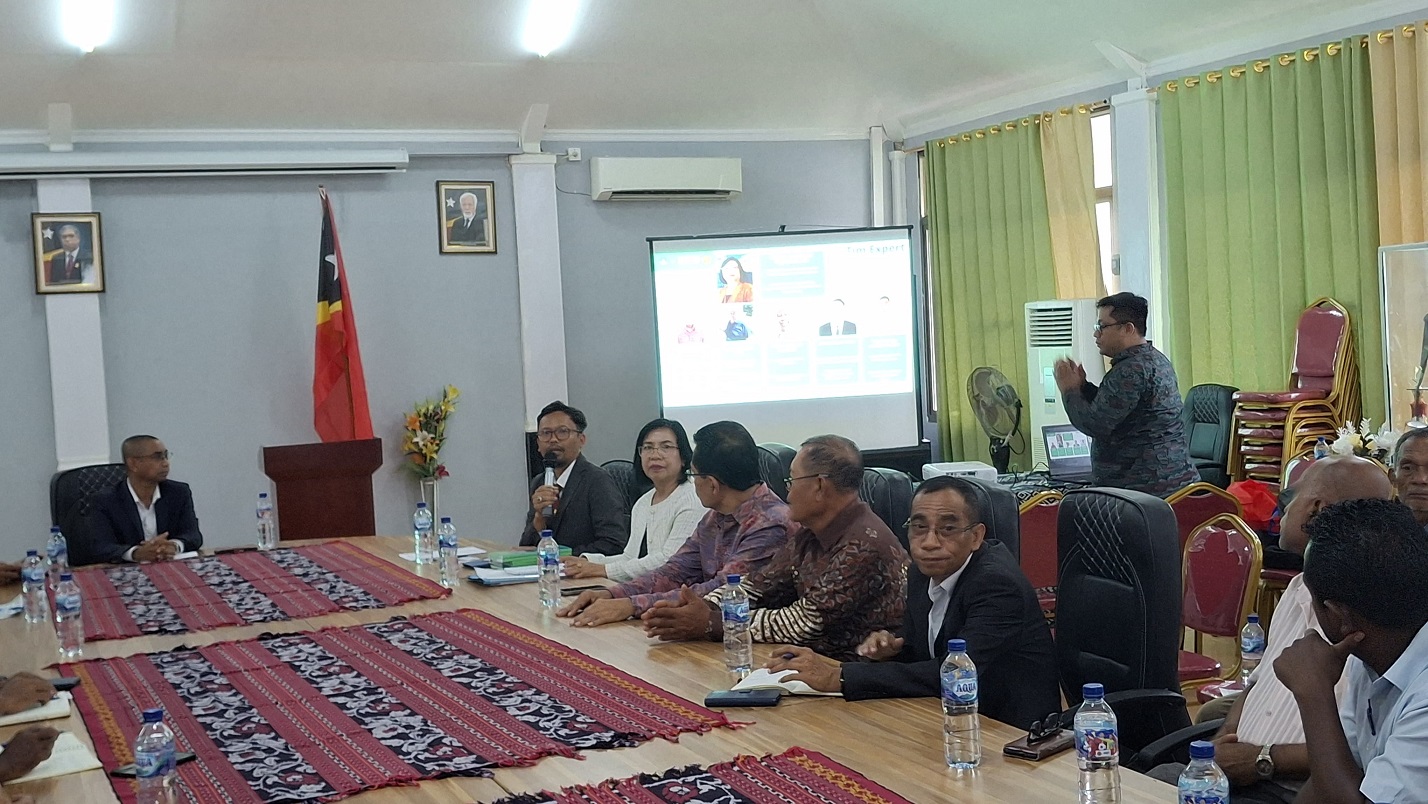
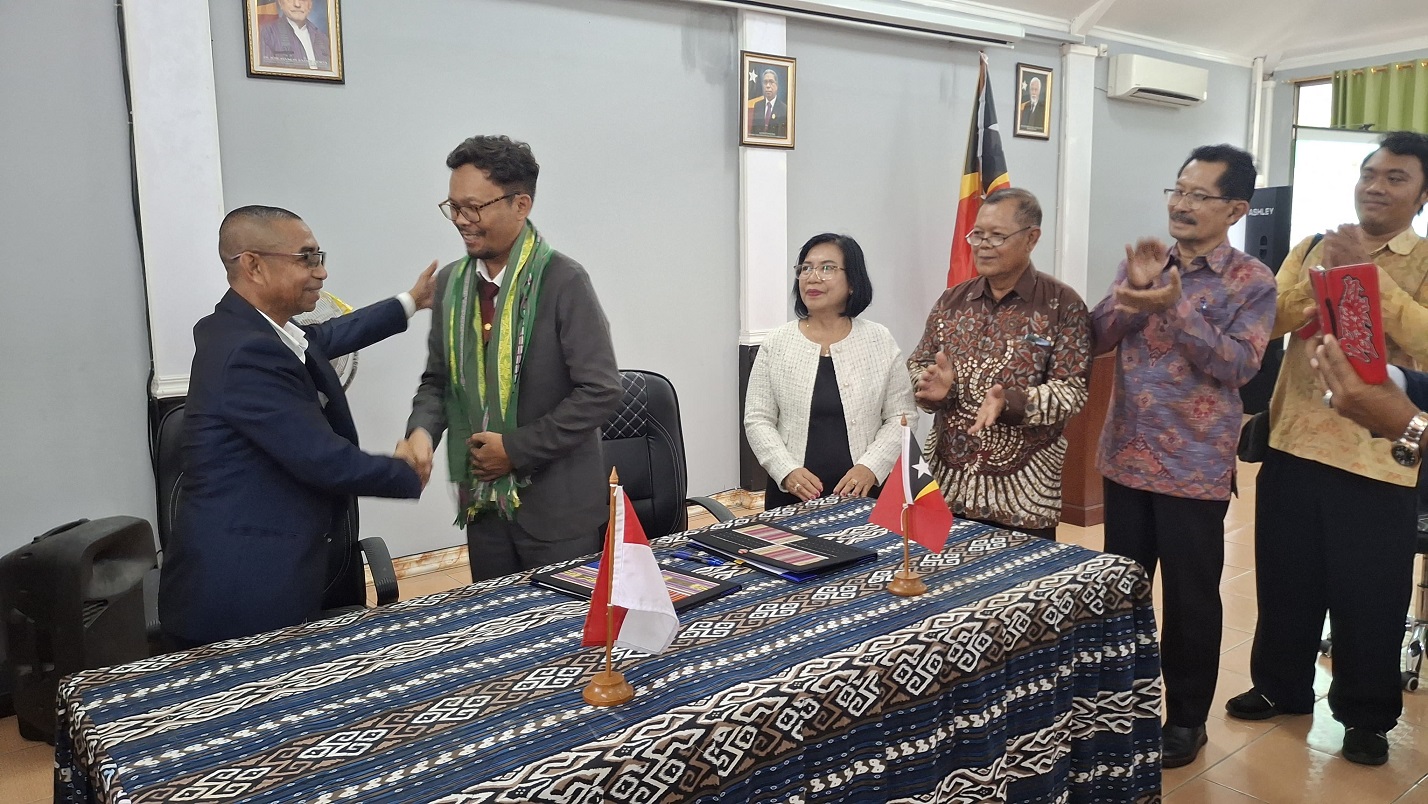
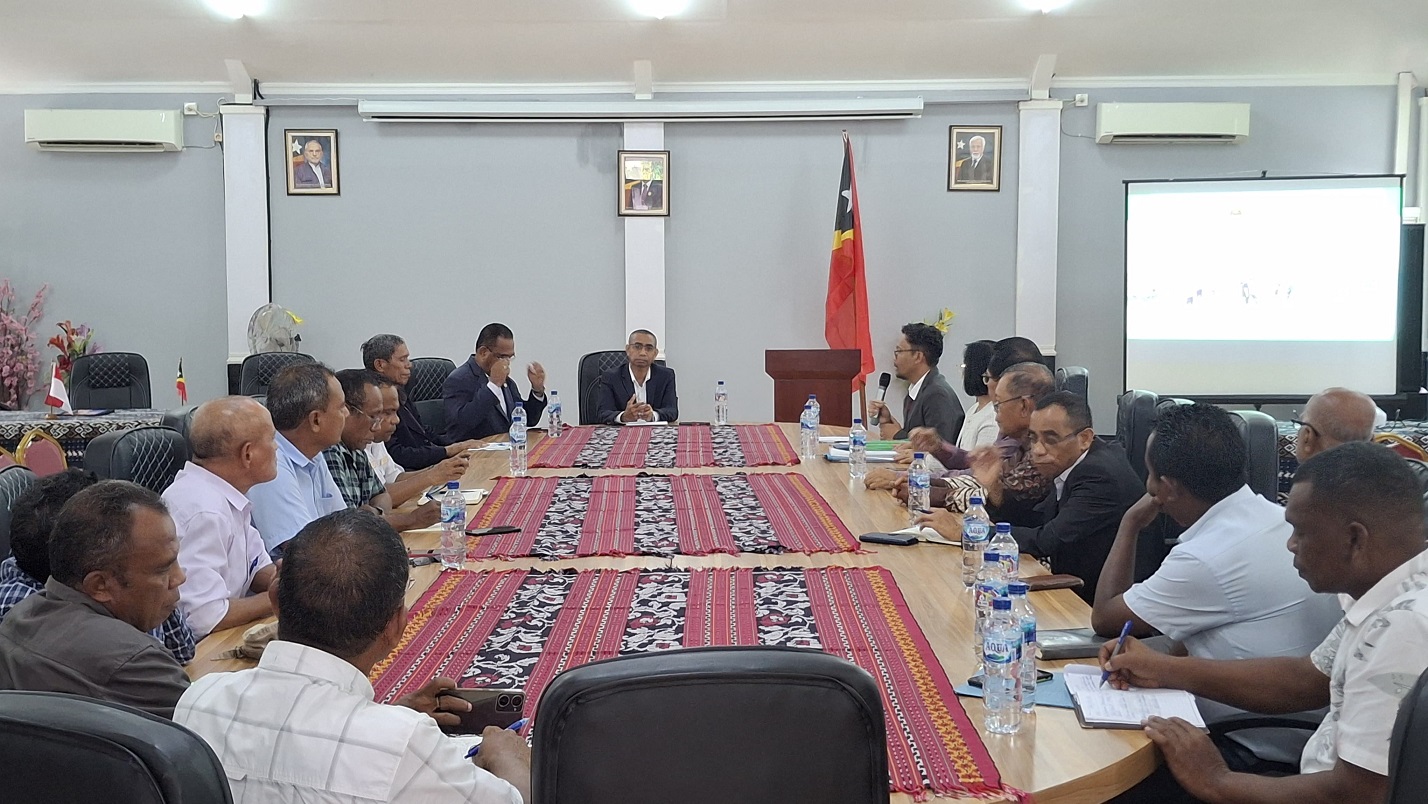
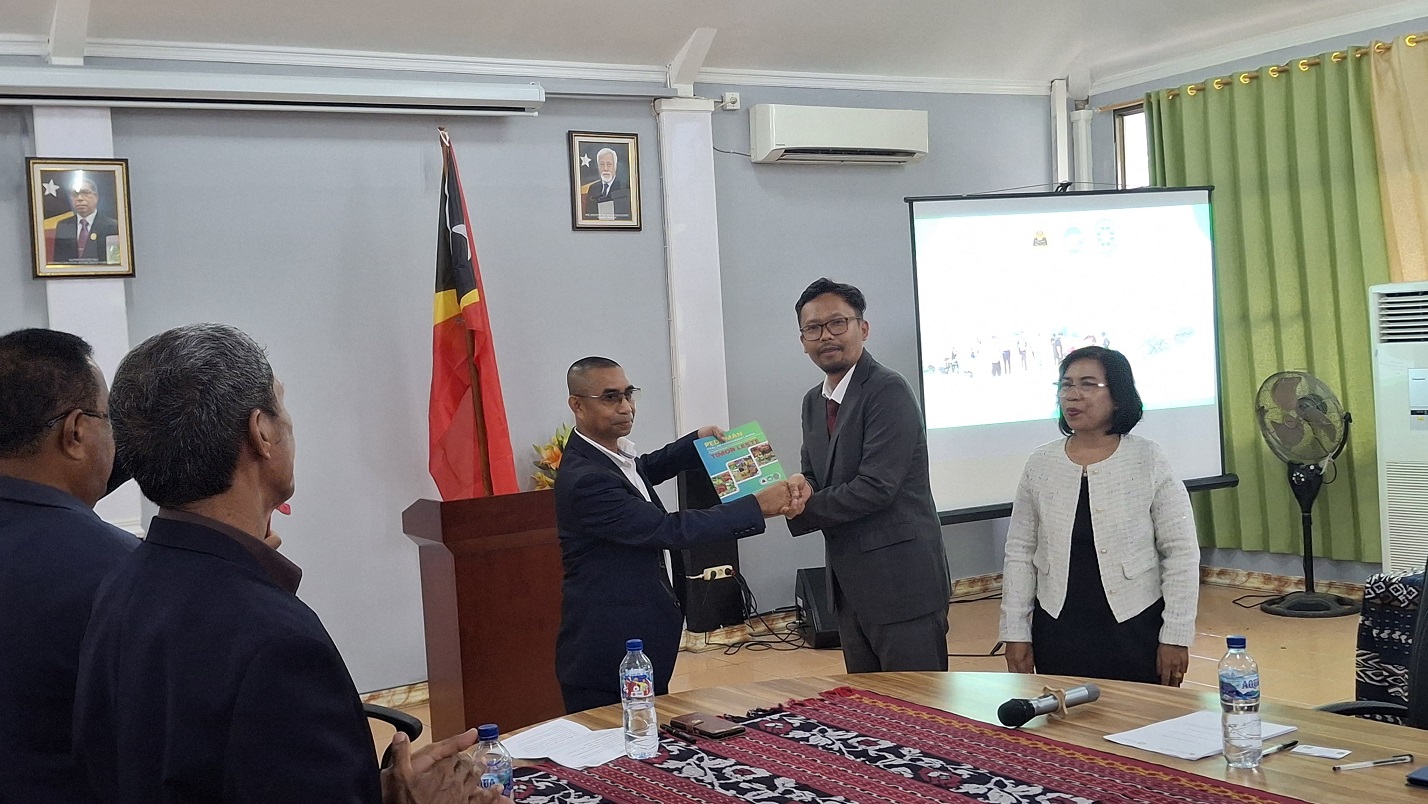
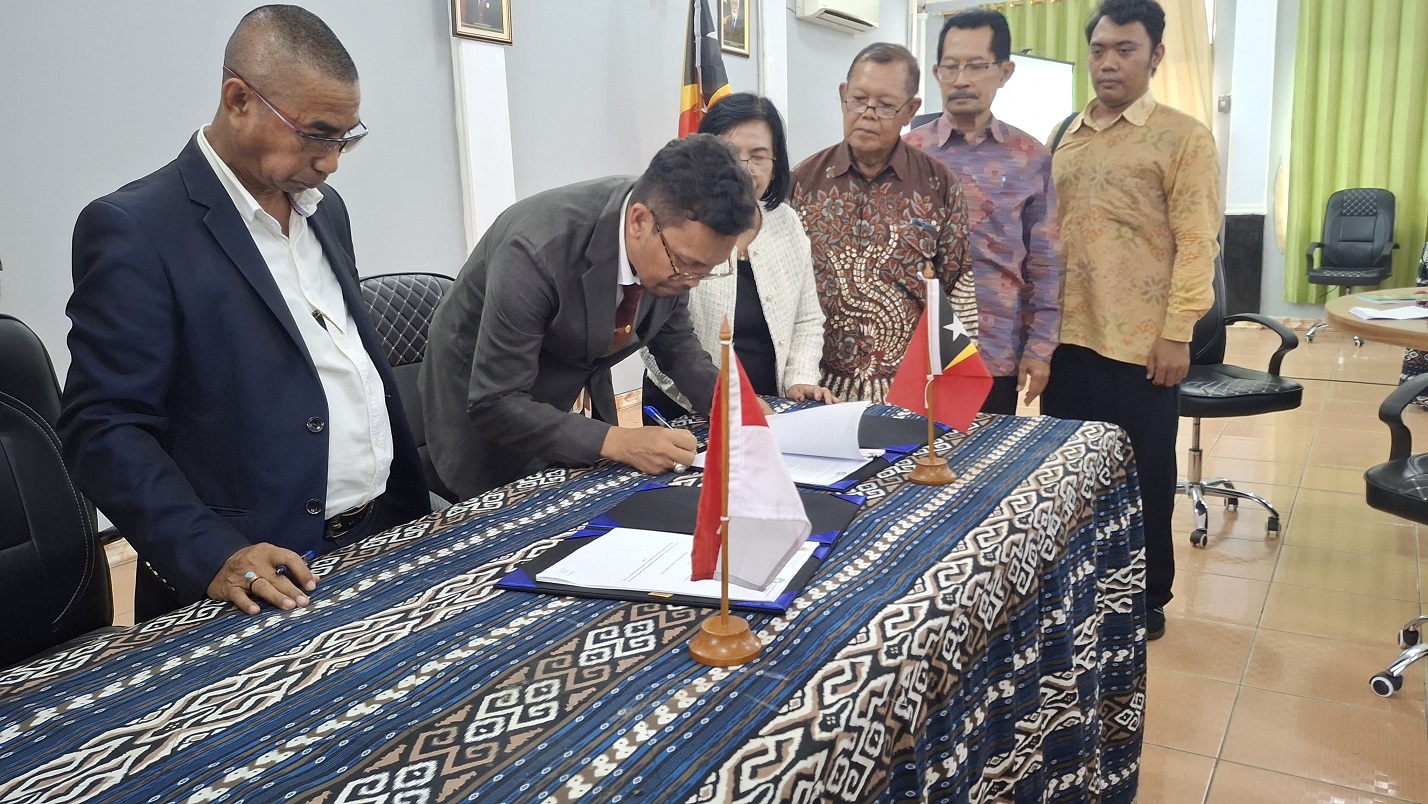
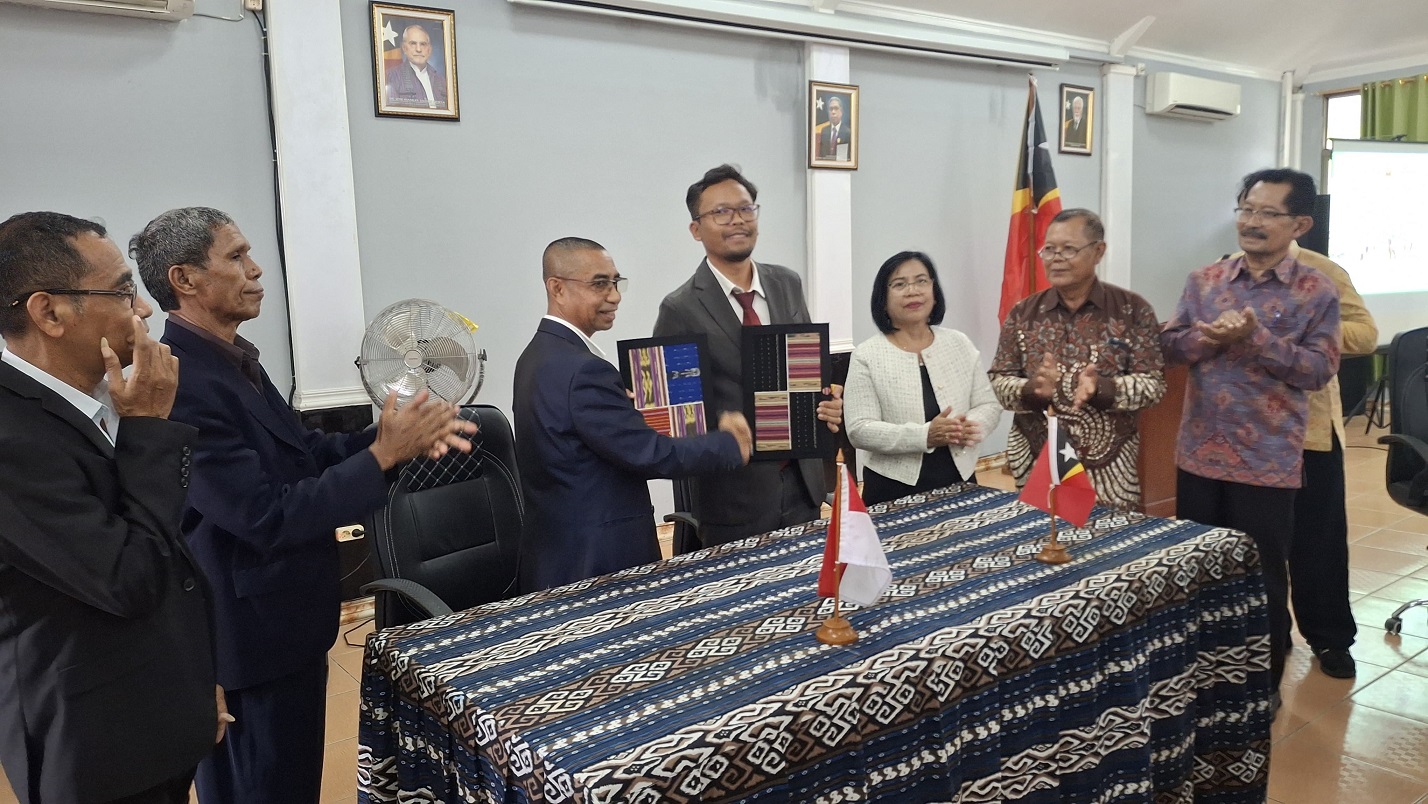
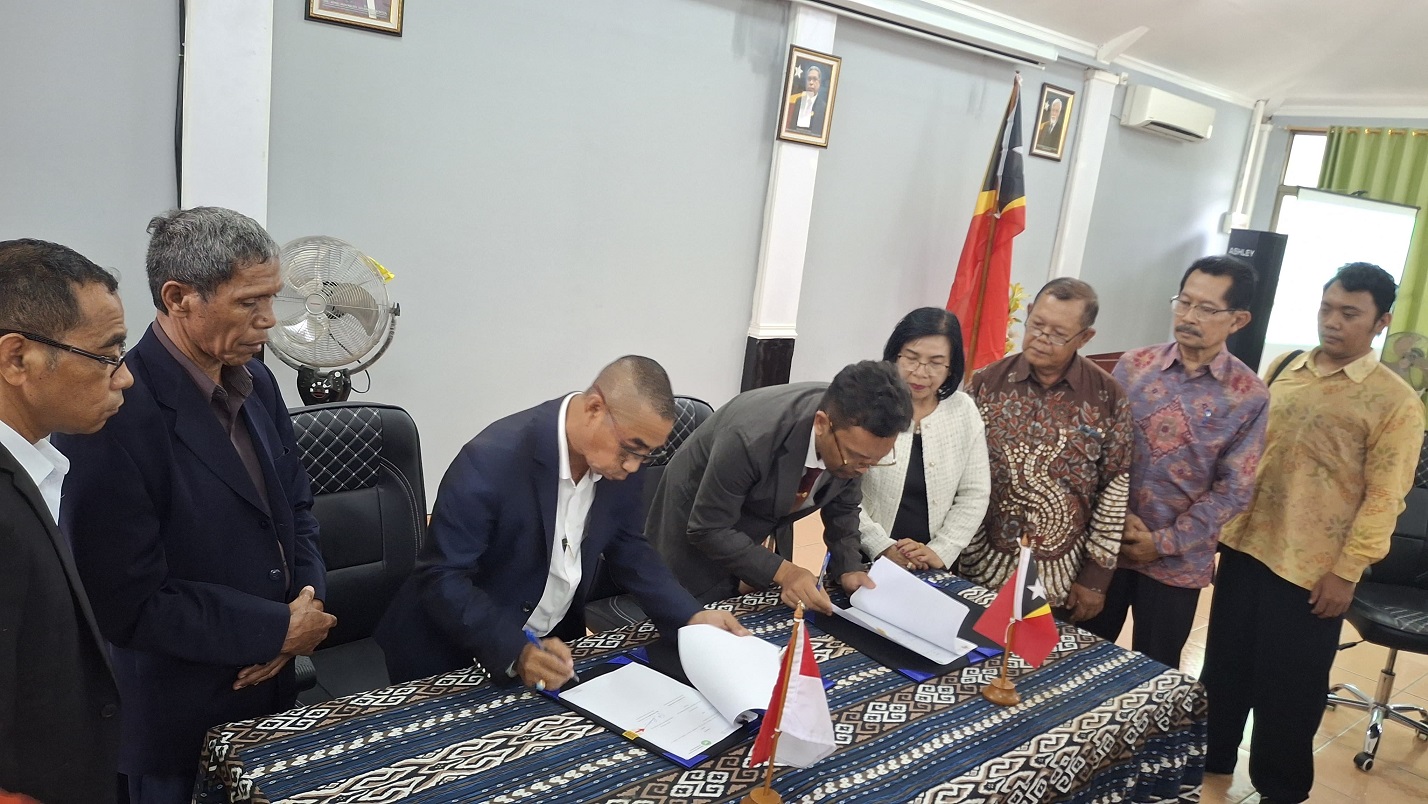
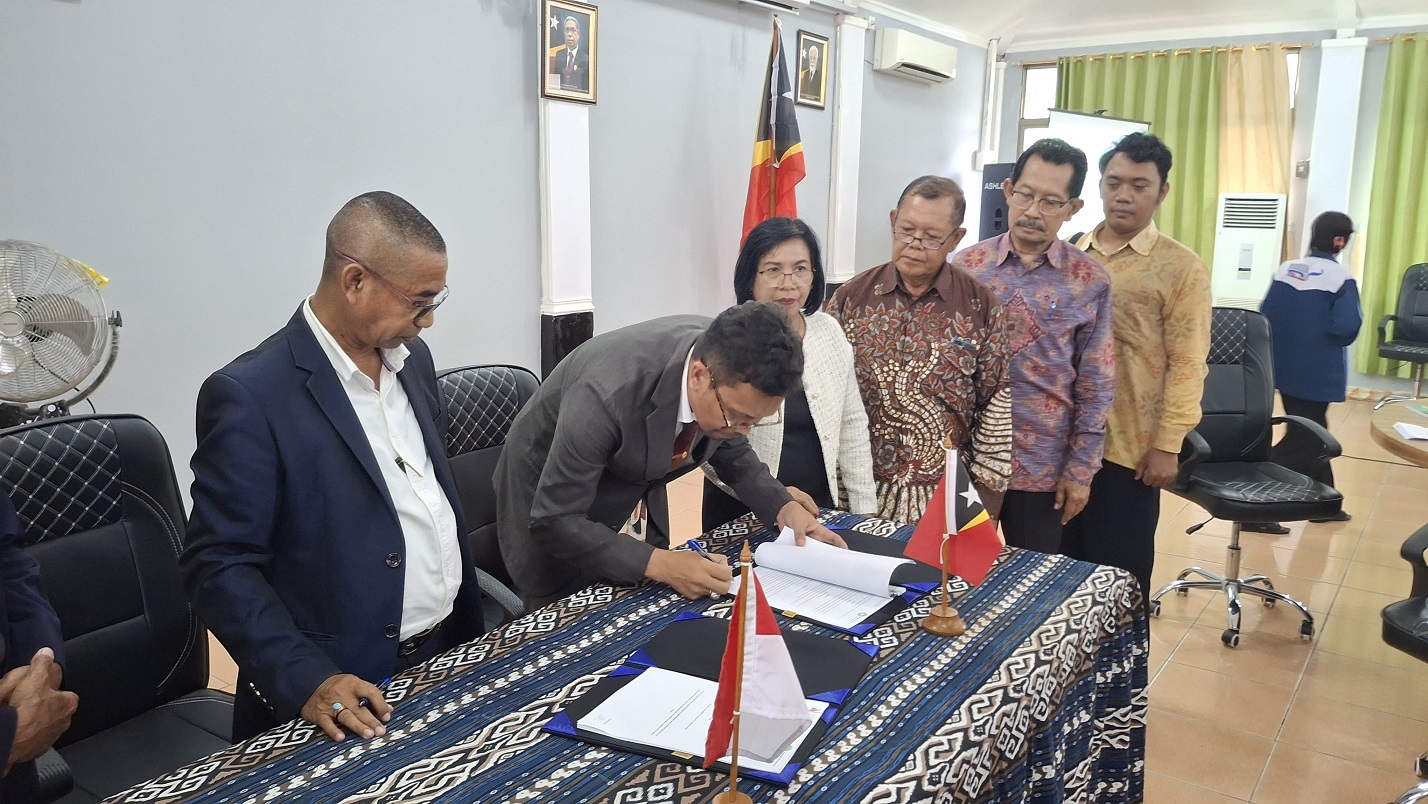
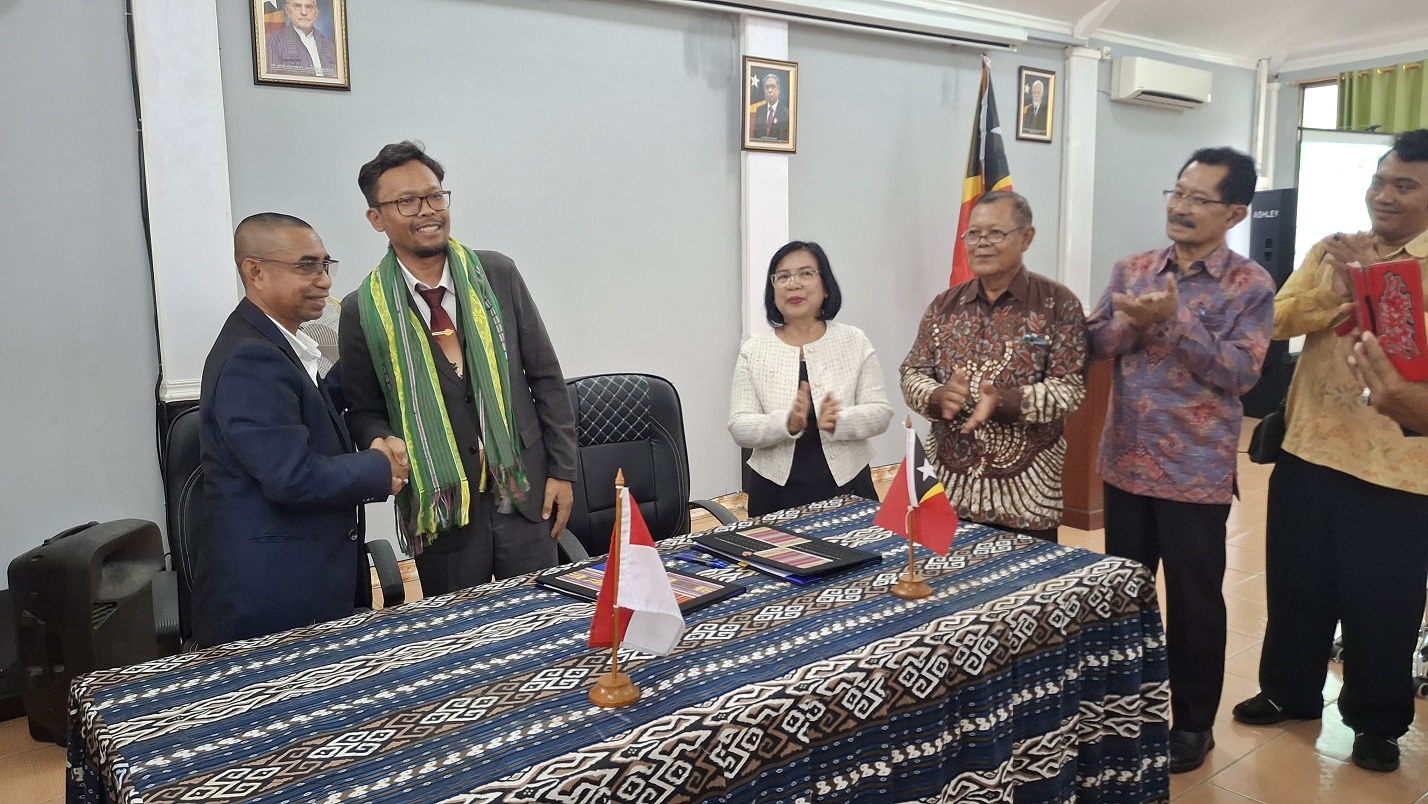
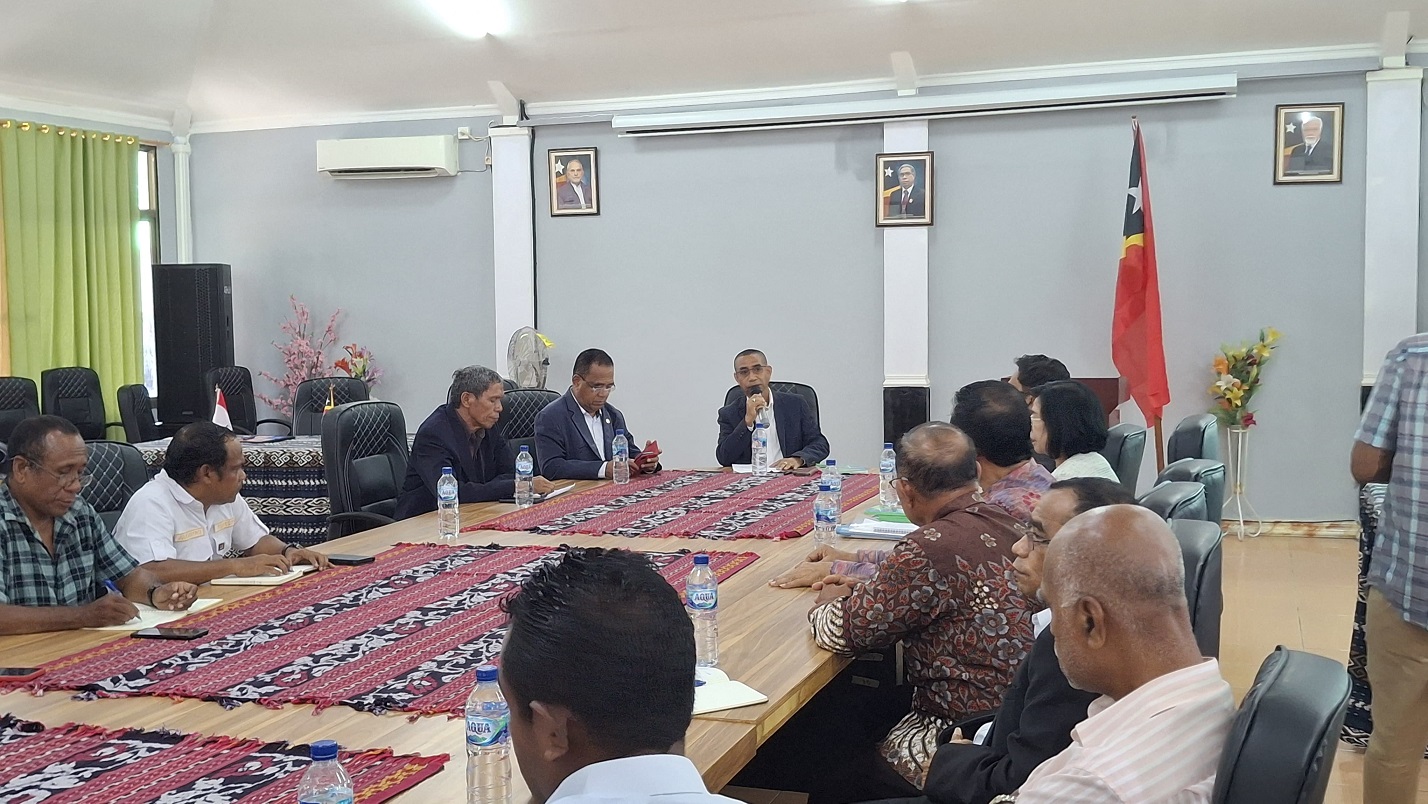
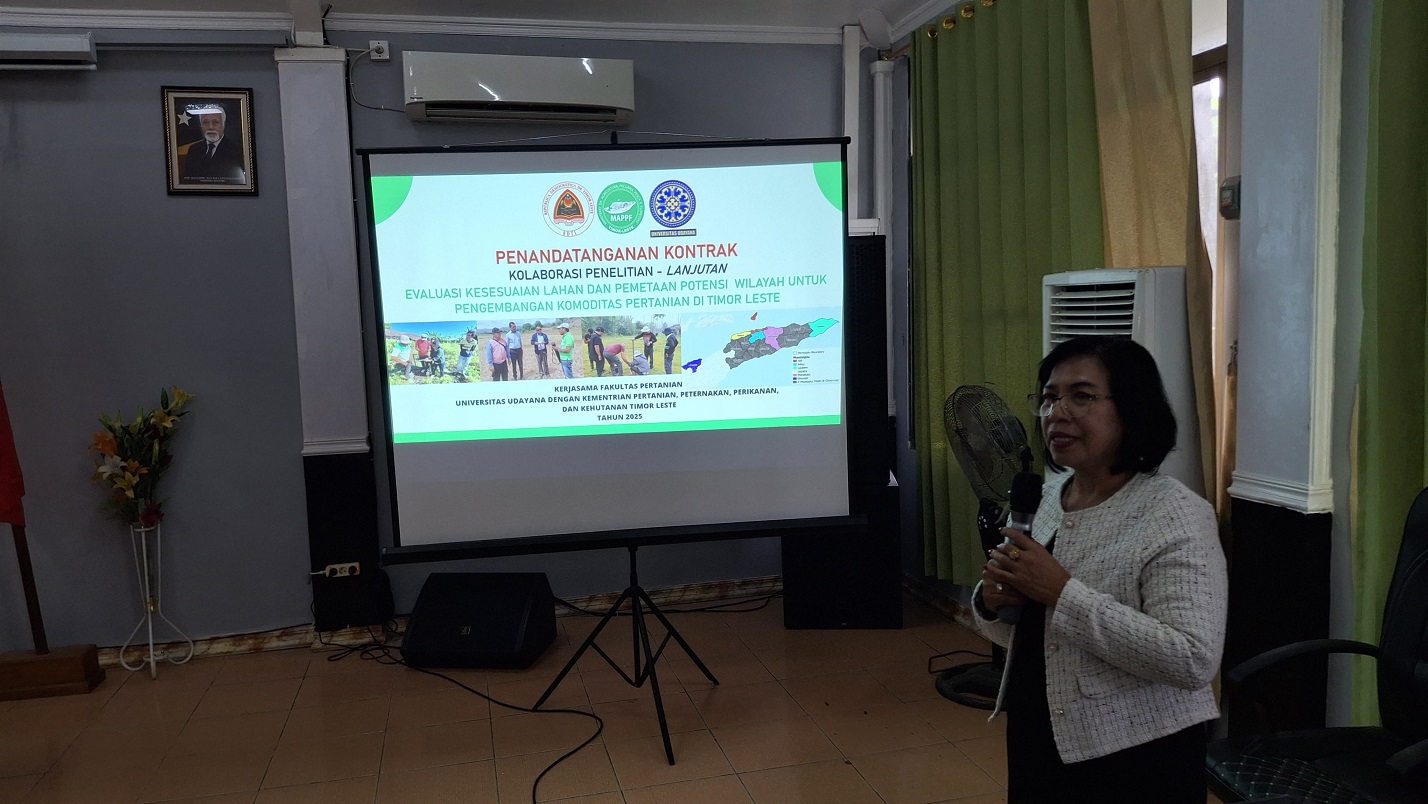
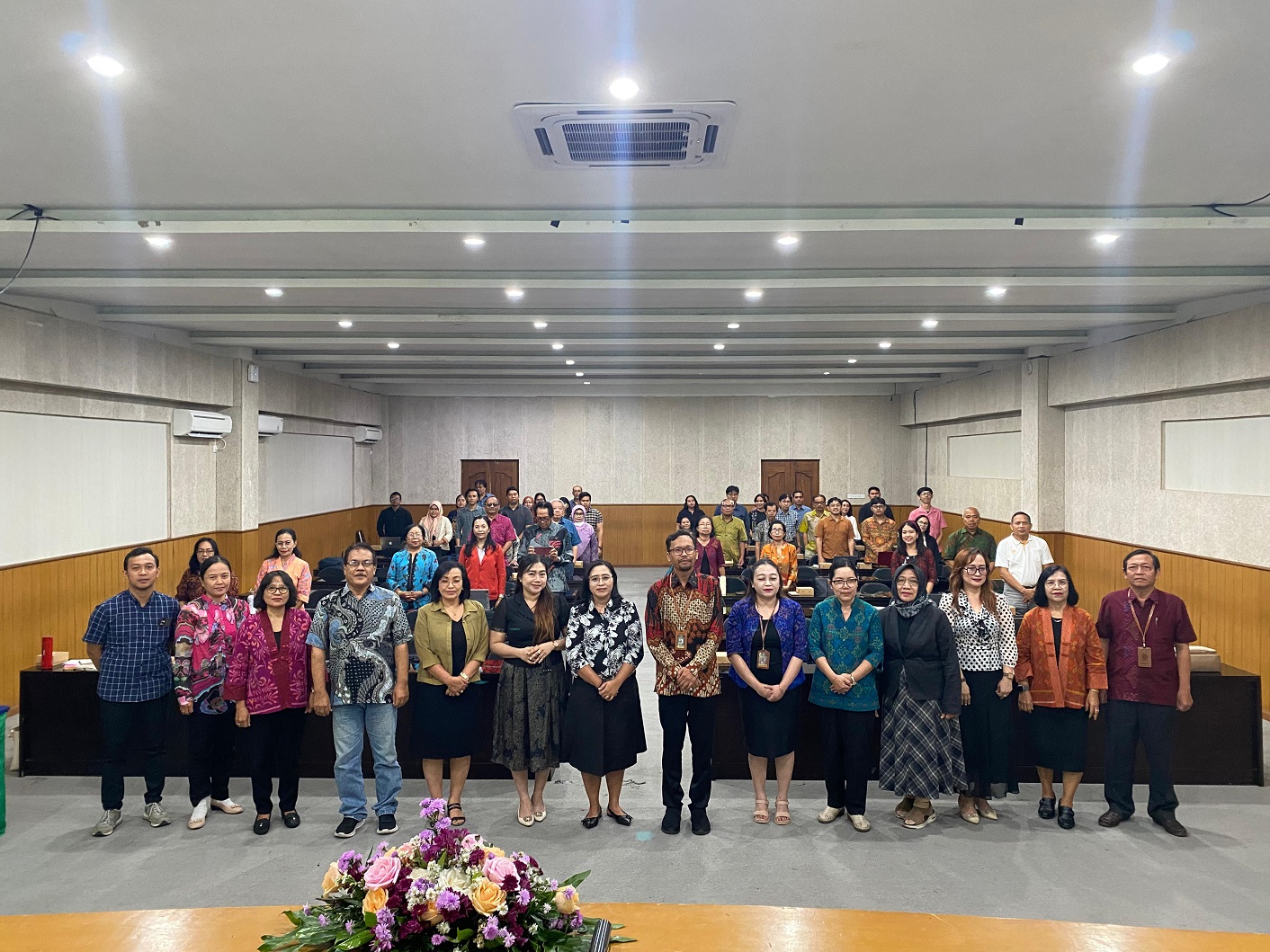
.jpeg)
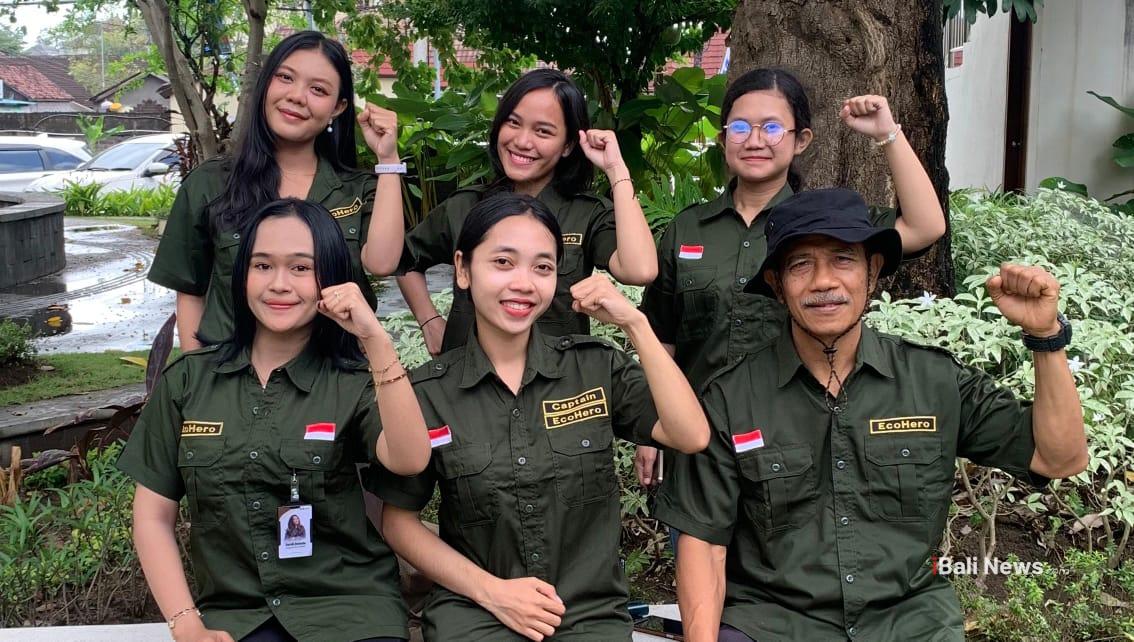
UDAYANA UNIVERSITY